Forged in Fire
Mar
23
2022
I don’t know where else things are forged, but people like to add unnecessary words so the standard phrase is “forged in fire”. Maybe one could forge something in lava?
Anyway, Gamma didn’t quite know what he wanted for his birthday, so we bought him an experience. The experience of blacksmithing. And it comes with something tangible, not just pictures and memories.
He got to choose from a small variety of objects to make. He chose the rail spike dagger. That is a double-sided knife made from a railroad spike.
We showed up shortly before our appointed time. After signing the waivers and getting our safety equipment (goggles for those who don’t wear glasses), we went into the forge room. Not sure if it had an official name, so I just call it the forge room. Only people who have signed waivers are allowed in there, but it has walls of plexiglas so anyone can watch.
There were a couple of anvils and furnaces.
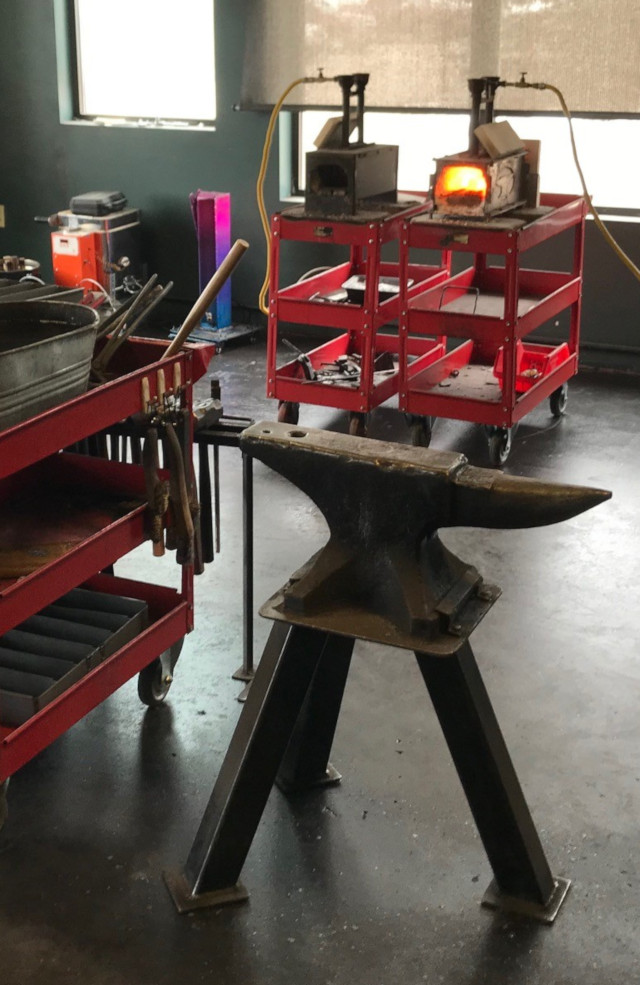
The worker guy was giving instructions and helping with stuff. For kids, he probably did 2/3 of the work; for the one adult there (not me, I was just spectating) the worker guy probably did 1/3 the work. Because the adult male could hit the metal hard enough to get it into the necessary shape, but the kids didn’t have quite enough oomph. They made progress, but they needed more help. They’d do their stuff, then the worker guy would “touch it up” with some extra strikes of the hammer.
The first step is to make the handle a little more decorative. Apparently the best way to do that is just to twist it – clamp the bottom in a vise and spin the top a few times. They had a specially-modified wrench for that.
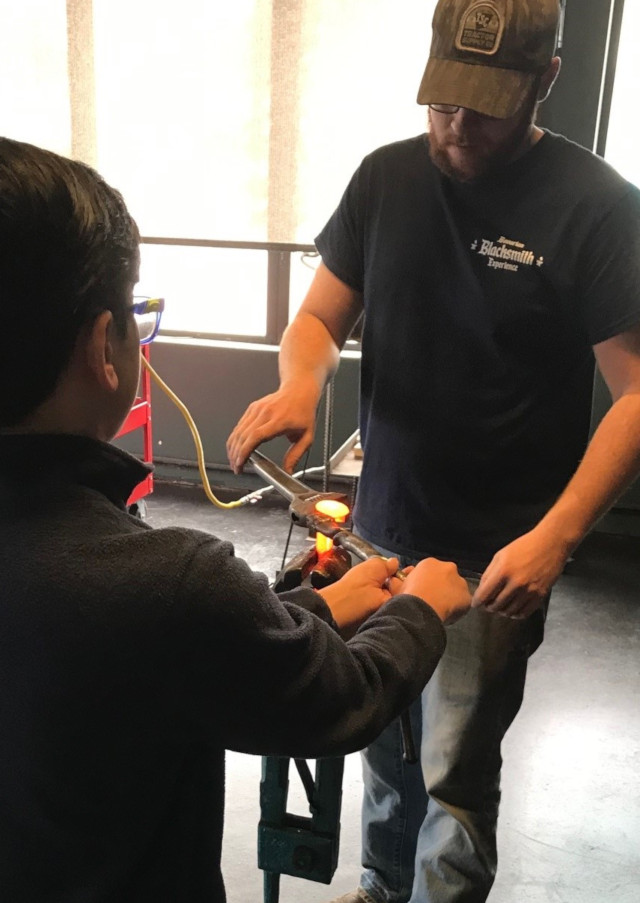
The next step is to smack the blade portion into thinner shape.
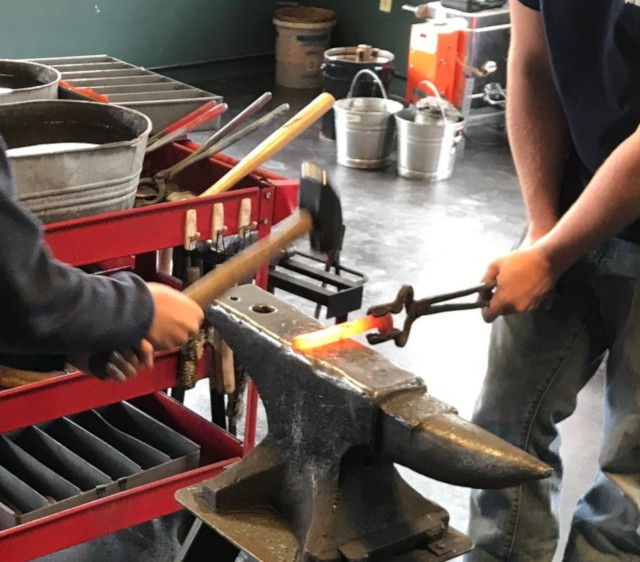
There were a few iterations of this step – pound it a bunch of times while it’s glowing hot, when it starts to cool down put it back in the fire, repeat.
The worker guy’s job was to hold the item securely, and move it around to ensure even coverage of the hitting. Gamma’s job (and the other people who also purchased similar experiences) was to keep hitting, and aiming for the same spot on the anvil. The key was not to aim for a spot on the dagger, because the guy was moving it so you’d hit difference spots all over the dagger. He said some people had trouble aiming at not the dagger.
Then, Gamma’s final step, once the dagger was the approximate right shape and thickness, was to put the dagger into water to cool it off and temper it.
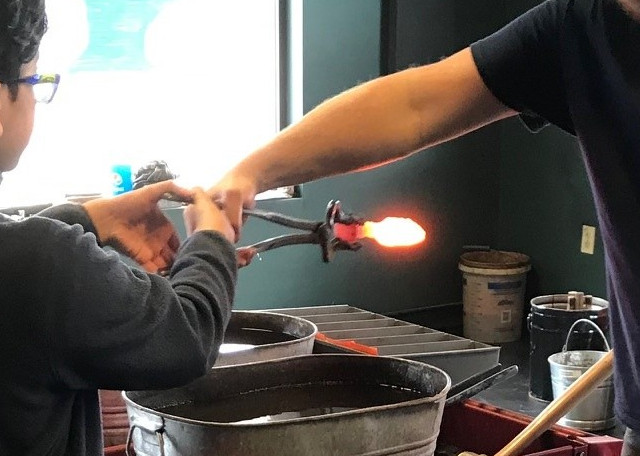
This step was not as dramatic as I had hoped. There was some steam and a slight hiss, but I wanted lots of steam and noise.
That was it for Gamma’s efforts. They handed him the dagger for a few minutes while they organized some things, then they took it back and said come back in an hour.
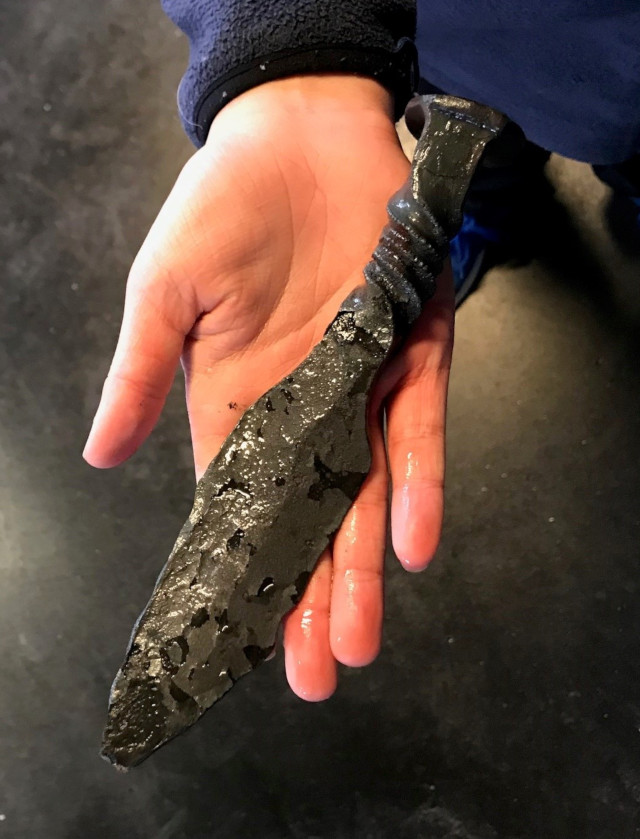
Not sure how it works with real blacksmithing, but for tourist blacksmithing they have you get the item close to what it should be, then they take it in the back room and grind it to be what it actually should be. That’s what takes an hour after you finish – grinding, sharpening, and polishing the knife.
What we did was go out to eat (late lunch), then we came back to the forge and picked up the finished product. As a bonus you get a leather sheath to hold and protect your dagger, and also protect your fingers.
Here is how it ended up:
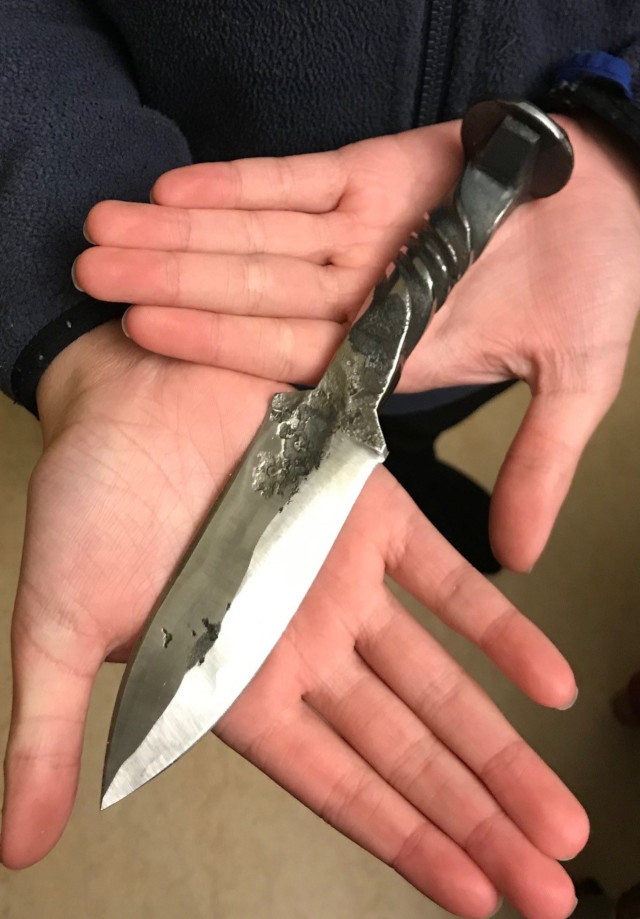
It turned out nicely I thought. The edges weren’t that sharp, but the point could certainly do some damage.
And Abraham took the wood for the burnt offering and laid it on his son Isaac, and he took in his hand the fire and the knife. So the two of them walked on together.
Genesis 22:6

 This is Alpha, the first-born, when he was 2YO.
This is Alpha, the first-born, when he was 2YO. This is Beta, the second-born, when he was about 2YO.
This is Beta, the second-born, when he was about 2YO. This is Gamma, the third-born, when he was about 18MO.
This is Gamma, the third-born, when he was about 18MO.







